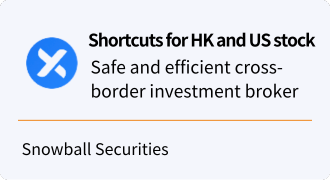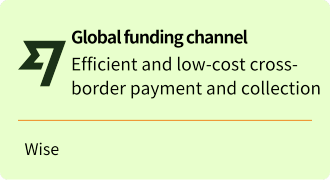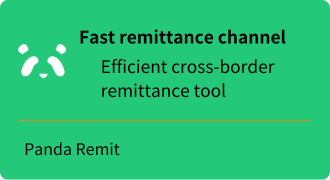Complete Compliance Rules & Tax Strategies - Canada Stock Investment Guide
[DISCLAIMER] This article is for educational and informational purposes only and does not constitute investment advice. Readers should consult with qualified financial professionals before making any investment decisions.
Your wallet is ready, but are the regulations?
I'm guessing you've got your eye on Canada's rich natural resource or banking stocks and are eager to put your money in the "land of the maple leaf". Yes, the Canadian market is full of opportunities, but before you hit the "buy" button, let's talk about the compliance issues that could put you on the wrong foot.
As a quantitative trading professional with numerous cross-border investments under my belt, I know how costly it can be to be unaware of local regulations - from additional tax burdens to unnecessary compliance costs, and possibly even legal exposure. Don't worry, this article will serve as your compliance roadmap for investing in Canadian equities.
I. Why Canadian equities? Investment Value and Compliance Challenges
Canada has the ninth largest stock market in the world, with more than 1,500 companies listed on the Toronto Stock Exchange (TSX) covering a wide range of sectors, including energy, finance, and mining. Especially those stable dividend-paying bank stocks, which pay dividends every year, have become the "favorite" of many overseas investors.
However, every investment paradise has its own rules and regulations. For overseas investors, it is not only important to consider the return on investment, but also to understand the compliance requirements such as KYC (Know Your Customer), anti-money laundering regulations, and tax reporting.
Three major pain points for investing in Canada in 2025:
- Lack of clarity on applicable tax rates leading to overpayment of taxes
- Compliance risk from not adhering to KYC and anti-money laundering regulations
- Loss of capital from not being able to take advantage of tax treaty benefits
Ⅱ. From Beginner to Master: A Complete Analysis of Canadian Investment Compliance
2.1 KYC and Anti-Money Laundering: Your First Threshold to Compliance
Want to open an investment account in Canada? First of all, you need to pass the KYC verification. This is not only a legal requirement, but also a measure to protect yourself.
A list of must-haves for KYC verification:
- Valid government-issued identification (passport is best)
- Proof of address (e.g. utility bill, bank statement)
- Proof of source of funds
- Personal Tax ID number (not required, but helpful for tax filing)
In 2023, it was reported that an investor's plan to invest in Canadian energy stocks was delayed for a full month and missed out on market opportunities because he did not prepare complete KYC materials. The cost of inadequate compliance preparation is sometimes not only time but also opportunity cost!
2.2. The Tax Maze for Overseas Investors: Capital Gains and Dividend Taxes
The Canadian tax system presents both challenges and opportunities for overseas investors. Let's unravel the tax maze:
2.3. Capital Gains Tax: An Unexpected "Tax Free" Benefit
This may be good news that many investors don't realize: capital gains made by non-residents on the sale of Canadian-listed shares are generally not taxable in Canada!
Why? Because securities listed on a recognized exchange are considered "Excluded Property" under the Income Tax Act of Canada, and capital gains on the sale of such assets by non-residents are not taxable.
Example: If you buy shares of Royal Bank of Canada and sell them one year later for a profit of C$10,000, as a non-resident, you are generally not liable to the Canadian government for capital gains tax. Of course, you will still need to report this gain in your own country.
But please note: This benefit does not apply to the following situations:
- Shares in unlisted Canadian corporations
- Shares whose primary value is derived from Canadian real estate
- Short-term, frequent transactions that are considered "business activities".
2.4 Dividend tax: 15% "standard deduction"
Unlike capital gains, dividends paid by Canadian corporations to foreign investors are subject to withholding tax. Generally, the standard withholding tax rate is 25%, but if your country has a tax treaty with Canada, this rate is usually reduced to 15%.
Practical Case Study: Dividend Tax Treatment for U.S. Investors
Let's assume that Jenny is a resident of New York, U.S.A. She owns shares of TD Bank and receives C$1,000 in dividends:
- Withholding Tax Calculation: Canada automatically deducts 15% as withholding tax (based on US-Canada tax treaty) = C$150
- Actual amount received: C$850
- U.S. Filing: When filing her U.S. tax return, Jenny will need to report the entire C$1,000 dividend income.
- Double Taxation Avoidance: She can claim a foreign tax credit of CAD$150 to reduce her tax liability in the US.
Many investors have missed out on tax benefits by not knowing this. Remember: knowing the applicable tax treaties can significantly save you tax costs.
2.5. Information Returns and Financial Account Information Exchange (CRS): A Transparency Requirement Not to be Ignored
"Wealth knows no borders, but information is shared" - this is the new trend in global tax cooperation. Canada, as one of over 100 countries worldwide that have implemented the Common Reporting Standard (CRS), collects and exchanges information on non-resident financial accounts.
What does this mean for investors?
If you open an investment account in Canada, financial institutions will assess your tax residency status. If you are identified as a foreign tax resident, your account information (including account balances, earnings, etc.) will be reported to the Canada Revenue Agency (CRA) and may be exchanged with your country of tax residence.
Helpful Hint: Make sure you provide accurate tax residency information to your Canadian financial institution and truthfully report worldwide income on your own country's tax forms to avoid unnecessary tax investigations.
Ⅲ. Best Practices for Investing in Canadian Shares: Procedures and Considerations
3.1. Differentiated Strategies for Investors of Different Nationalities
Investors of different nationalities face different compliance requirements. The following are special considerations for several major investor groups:
U.S. Investors:
- May qualify for a 15% dividend withholding tax rate (lower than the standard 25%)
- Potentially more tax benefits for investing through retirement accounts such as IRAs
- Form W-8BEN is required for tax treaty benefits
Chinese investors:
- 10% dividend withholding tax rate applies (based on China-Canada tax treaty)
- Be aware of China's foreign exchange control policies
- Ensure that funds exit the country in a compliant manner and retain relevant certificates.
EU Investors:
- Depends on country-specific tax treaties (mostly 15%)
- May need to consider other factors such as EU financial transaction tax
- Be aware of the impact of GDPR on the handling of personal information
There have been investors in the market who have successfully reduced the effective tax rate on their investments in Canada through legal structuring. Sound tax planning needs to be done within the legal framework and investors are advised to seek guidance from a qualified tax professional.
3.2. Practical Guide: Account Selection and Trading Strategies
Policies for non-resident investors vary by brokerage firm and account type. Below are my hands-on recommendations:
Brokerage firm selection:
- Internationally recognized brokerages (e.g. Interactive Brokers, TD Ameritrade) are more friendly to non-residents.
- Some local Canadian brokerages have higher thresholds for non-residents
- Consider if your country has a brokerage with direct access to the TSX.
Account Type:
- Regular Cash Account: the most basic option, suitable for most overseas investors
- Margin Account: Offers leverage, but be aware of the additional risk of cross-border leveraged trading
- Retirement Accounts: may have special benefits depending on tax treaties
Investment Strategy Adjustment:
- Consider tax differences between dividends and capital gains
- For investors who value regular income, evaluate after-tax yields
- Long-term holding strategies are generally more tax efficient than frequent trading
3.3. A guide to avoiding the pitfalls of compliance: common mistakes and how to deal with them
As an “old-timer,” I've seen too many investors lose money or opportunities due to compliance issues. Here are the three most common “pitfalls”:
Pit 1: Ignoring the Tax Treaty Filing Process
- Mistake: Failure to file forms such as W-8BEN defaults to a 25% dividend tax deduction instead of 15%.
- Response: Ensure that the correct tax forms are filed at account opening and periodic renewal.
Pit 2: Confusing capital gains rules
- Mistake: Not understanding the concept of “excluded property”, missing tax exemption opportunities or failing to plan appropriately.
- Response: Distinguish between the tax treatment of listed and unlisted shares.
Pit 3: Incomplete Information Reporting
- Mistake: Failure to declare overseas assets and income in home country
- Response: Fully understand the overseas asset reporting requirements in home country (e.g. US FBAR, China's personal foreign exchange declaration, etc.)
There have been reported cases where investors faced unexpected tax burdens when selling their shares in a Canadian startup company because they ignored Canada's special treatment rules for unlisted shares. Understanding the relevant regulations in advance can help avoid unnecessary tax disputes.
IV. Canada Investment Outlook 2025: New Trends in Compliance
As global tax transparency requirements increase, the Canadian compliance environment is evolving. Here are the trends to watch:
- Enhanced digitization of KYC verification: remote identity verification technology is improving and may streamline the account opening process for overseas investors in the future
- Expanded information exchange: the types of information covered by the CRS and participating countries are likely to increase further
- Clarification of digital asset regulation: Canada is gradually clarifying the regulation and tax treatment of digital assets such as cryptocurrencies
- Increased economic substance requirements: shell structures set up solely for the purpose of obtaining tax benefits will face greater scrutiny
Paying close attention to these changes will keep your investment strategy up-to-date, compliant and efficient.
V. Compliant Investing: Burden or Opportunity?
After parsing through this article, it may seem to you that compliance requirements add to the complexity of investing. But I would argue that compliance is not just a burden, it is a protection and an opportunity.
By gaining a deeper understanding of Canada's investment regulations, you can:
- Maximize after-tax returns
- Reduce legal and regulatory risk
- Build a solid foundation for long-term investing
- Maintain compliance in times of market volatility
There is a saying in the investment world: “Compliance is an umbrella for investing, not a stumbling block.”
VI. A Guide to Action: Taking the First Steps Toward Investing in Canada
Investors considering investing in the Canadian market can refer to the following points:
- Evaluate your tax situation: know your country's tax treaty with Canada
- Choose the right brokerage firm: make sure they can handle non-resident accounts
- Prepare complete KYC documentation: prepare proof of identity and address in advance
- Design a tax-efficient investment strategy: consider the different tax treatment of dividends vs. capital gains
- Create a compliance calendar: keep track of important filing dates and document updates
Remember, successful investing is not just about return, it's about net return - the true benefit after compliance costs and tax liabilities are deducted.
Ⅶ. Look to the Future: Risk Management is the Way to Win
Understanding compliance is only the first step in investing overseas. In the next article, we will delve into "[A Beginner's Introduction to Risk Management for Novice Investors (Canadian Stock Trading)]", analyzing risk management principles and strategies in a volatile market.
Whether it's the cyclical volatility of resource stocks or the systemic risk of financial stocks, sound risk management strategies can help you ride the waves of the Canadian market.
Have you had any experience investing in Canada? What compliance challenges have you encountered? Or do you have any unique insights into tax planning? Feel free to share your stories and questions in the comments section!
Let me know if you have questions about the compliance requirements faced by investors in specific countries as well, and we'll try to analyze the relevant points in our next post. Compliance for cross-border investments requires a thorough understanding of the regulations and investors may consider seeking guidance from professionals.







